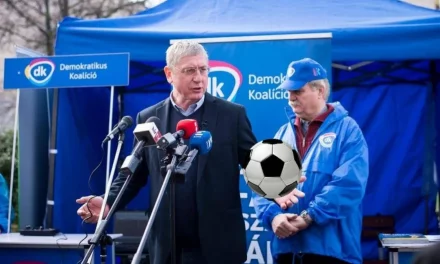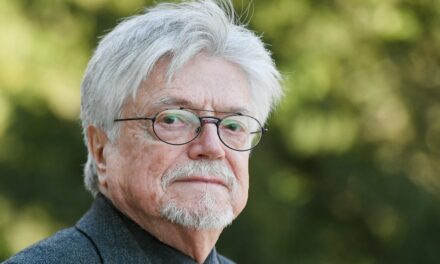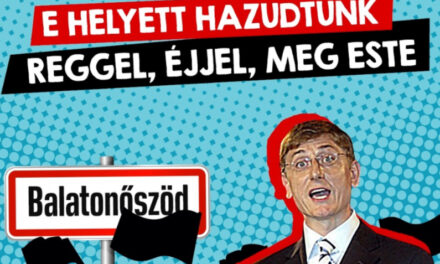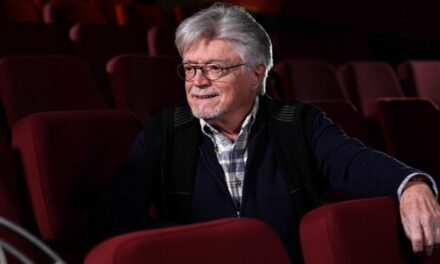Currently, the Ukrainian army is losing 500-1000 people per day. In addition, there are another 600,000 Ukrainian men living abroad, who, if sent home by the receiving countries, would only add to the army's manpower for one and a half to two years, the expert pointed out.
However, Zoltán Kiszelly also drew attention to the fact that Ukrainian President Volodymyr Zelenskiy is planning an attack on the battlefield next year, but the attacking side always has much greater losses than the defending side. If the Americans call on the Ukrainians to defend themselves, their deployable personnel will be sufficient for a maximum of two and a half years. If they do launch an attack, this period will be shortened to a maximum of two years, he added.
NATO or the West?
At the end of February this year, President Emmanuel Macron was the first of the Western allies to say that the sending of French soldiers to Ukraine cannot be ruled out. It was joined by the Poles and then by the Baltic states. Regarding what such a step would mean for NATO, Kiszelly said:
"It can be seen that in recent times, Ukraine has concluded bilateral defense agreements with, for example, France and Spain. With this, pro-war countries will enter the war in Ukraine, and this is the means by which they can keep NATO and America out."
According to the political scientist, such a proxy war in Ukraine could be the main test for a later war, even against Iran or China. The essence of this is that the nuclear powers are at war with each other without risking a nuclear clash.
What can the West give?
Returning to the Ukrainian resources, the political analysis director of Századvég emphasized that a maximum of 300,000 more soldiers can be mobilized from pro-war Western countries. This would ensure the combat capability of the Ukrainian army for an extra year.
If the Ukrainian army has enough manpower for roughly three years, together with its own soldiers and fighters coming from the West, then it can be stated that they are expecting a protracted war, said Zoltán Kiszelly. However, the analyst emphasized that " soldiers will be needed in the same way afterwards, so that is why they are talking about the introduction of mandatory European conscription ".
As he said, this is being prepared by the restoration of conscription, which, in turn, will also require the construction of military infrastructures such as barracks, training centers, and training officers. There is currently no money for these in Europe, so they will be implemented with loans.
Zoltán Kiszelly also pointed out that the European politicians are now speaking so openly in favor of the continuation of the war, as well as the restoration of mandatory European conscription, in order to make it clear on a communication level: they spoke in advance. However, from the point of view of military implementation, it must also be seen that the training of combat-capable soldiers takes years.
Before World War II, military training in Germany was two years. It is clear that it is not possible to withdraw young people from the labor market for such a long time, he pointed out.
Peace is not an option
According to the analyst, they expect a protracted war in Europe. Zoltán Kiszelly emphasized:
Westerners are not looking for a solution for peace negotiations, but for soldiers for war.
Regarding the question of how the European People's Party (EPP) can still be the most popular party in Europe despite its open pro-war messages, the analyst pointed out that the People's Party has a strong base in, for example, Greece, where it is the ruling party, as well as in Germany, where, compared to the extremely unpopular ruling parties, the people's party CDU/CSU is currently in opposition.
On the other hand, the Western Europeans are of the opinion that they will take the Eastern Europeans first, he added.
As he said, the restoration of conscription is already emerging as a trend in Europe. Compulsory military service was also reinstated in Sweden, Croatia and Lithuania.
The Hungarian government, on the other hand, ensures the supply of the army through cadet training. If 7,500 young people study in these schools every year and only half of them become soldiers, that is enough for us. In addition, they choose this profession voluntarily, so we do not need mandatory conscription, he emphasized.
A war union is being built
However, with the predominance of pro-war politics, the institutional system of the European Union is also at risk. Zoltán Kiszelly reminded that they want to switch to majority decision-making instead of unanimity at the highest level of EU decisions, in the European Council, which brings together heads of state and government, as well as ministers. As he said, this would apply to all questions. To enforce this, they have already found the relevant article in the Treaty of Lisbon.
"According to the contract, it is possible to switch to majority voting with a single unanimous vote. And this would apply to all areas," he warned.
According to the political scientist, Hungary's pro-peace position could be ensured by an "opt out" clause, which Denmark also fought for in 1992. Then the Danes rejected the Maastricht Treaty in a referendum. However, from the point of view of acceptance of our absence, it could be a disadvantage for us that if our country were to receive the possibility of a constructive stay, it would set a precedent for those EU member states that are not 100% committed to the war policy.
In addition to all this, Brussels' pro-war commitment is also indicated by the fact that in the new European Commission established after the June elections, the body will already have a Minister of Defense in the title of Defense Commissioner, who will be responsible for the coordination of processes such as the training of Ukrainian soldiers in Ukraine.
Cover image: Illustration / MTI/EPA/Bundeswehr













